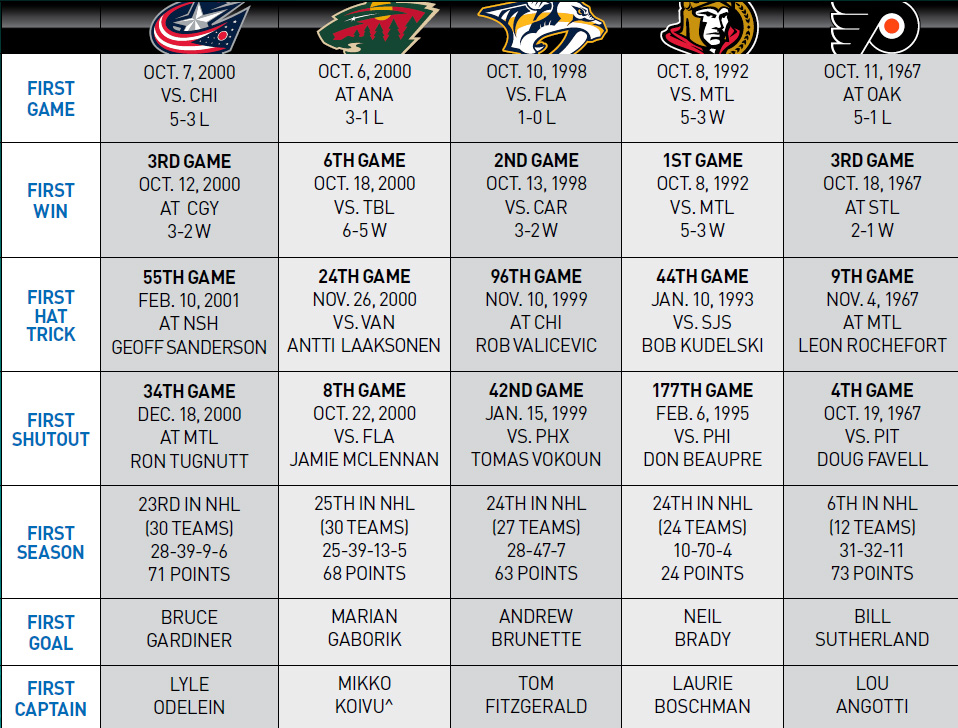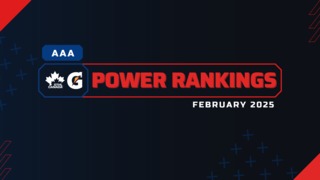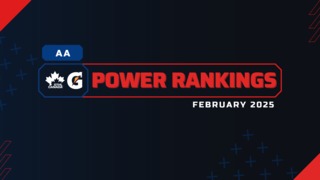Originally published in the September 2017 issue of Breakout Magazine
The NHL scheduling matrix looks a little different this season, with 41 more games on the regular-season docket to accommodate Vegas, Baby! The first Nevada-based team to join one of the “Big Four” North American professional sports leagues will make its debut on Oct. 6 when the Vegas Golden Knights hit the ice in Dallas.
Geographical change is something the League has not seen much of in the 21st century, with the only alteration coming in 2011 when the Atlanta Thrashers shipped north to become the Winnipeg Jets. New team, same franchise.
The NHL last expanded 17 years ago when the Minnesota Wild and Columbus Blue Jackets lost their regular-season debuts on consecutive days in October 2000. Their fate in those games was similar to that of their expansion brethren – new franchises hold an all-time record of 6-16-3 in their inaugural games.
How will the Golden Knights compare? Breakout examined key milestones for the NHL’s last two new additions as well as three other notable NHL expansion teams: the Nashville Predators (first NHL team in Tennessee), Ottawa Senators (last Canadian expansion club) and Philadelphia Flyers (fewest seasons to win first Stanley Cup).
^First full time captain
SO YOU WANT TO. . .
BE THE BEST? Make the Stanley Cup Final like the St. Louis Blues. Okay, not a fair comparison since at least one expansion team was guaranteed a spot in the series (the Blues were swept). A more realistic target is the record mark of 83 points set by the Florida Panthers in 1993-94.
NOT BE THE WORST? Muster more than 21 points. The Washington Capitals failed to reach double digits in the “W” column in their inaugural season, going 8-67-5 for 21 points. Ouch.
FROM 6 TO 31 – A GLANCE AT THE NHL’s GEOGRAPHICAL HISTORY
1942 – The Original Six era begins
What changed?
The Brooklyn Americans fold, leaving the Boston Bruins, Chicago Black Hawks, Detroit Red Wings, Montreal Canadiens, New York Rangers and Toronto Maple Leafs to play for the Stanley Cup.
Team count: 6
1967 – NHL doubles in size
What changed?
The largest expansion in pro sports history brings in the California Seals, Los Angeles Kings, Minnesota North Stars, Philadelphia Flyers, Pittsburgh Penguins and St. Louis Blues
Team count: 12
1970 – Two more join
What changed?
Ladies and gentlemen, please welcome the Buffalo Sabres and Vancouver Canucks.
Team count: 14
1972 – Make it a Sweet 16
What changed?
A future dynasty is born in the New York Islanders and the NHL heads south for the first time in the form of the Atlanta Flames.
Team count: 16
1974 – Two steps ahead
What changed?
Make it two teams in Missouri with the addition of the Kansas City Scouts. The U.S. capital also joins the ranks with the Washington Capitals.
Team count: 18
1976 – Into the Rockies
What changed?
The Scouts head west to become the Colorado Rockies.
Team count: 18
1978 – Merge ahead
What changed?
Things get complicated. After two name changes in California made them the Golden Seals, the team moved in 1976 to become the Cleveland Barons. The Ohio-based team lasted two seasons before merging with the North Stars.
Team count: 17
1979 – On the move
What changed?
Four teams join the NHL via the rival World Hockey Association; the Edmonton Oilers, Hartford Whalers, Quebec Nordiques and Winnipeg Jets all make the move.
Team count: 21
1980 – Farewell, Georgia
What changed?
Same nickname, new city as the Calgary Flames are born out of Atlanta.
Team count: 21
1982 – Devil of a time
What changed?
Once the Scouts and then the Rockies, the team finds its niche as the New Jersey Devils.
Team count: 21
1991 – California X2
What changed?
California again becomes a two-team state with the addition of the San Jose Sharks.
Team count: 22
1992 – Just Keep Growing
What changed?
NHL hockey returns to Canada’s capital with the addition of the Ottawa Senators, while Florida gets its first taste of top-level in the Tampa Bay Lightning.
Team count: 24
1993 – It’s getting hot in here
What changed?
The Florida Panthers and Mighty Ducks of Anaheim are the newest expansion clubs, while the North Stars become the Dallas Stars.
Team count: 26
1995 – Au revoir
What changed?
The Nordiques relocate to Denver to become the Colorado Avalanche.
Team count: 26
1996 – Flying south
What changed?
The Jets take off for Phoenix, where they are now known as the Arizona Coyotes.
Team count: 26
1997 – Storm is brewing
What changed?
The winds of change help the Whalers become the Carolina Hurricanes.
Team count: 26
1998 – Hockey tonk
What changed?
The NHL goes country by adding the Nashville Predators.
Team count: 27
1999 – Hello, Georgia
What changed?
The NHL returns to the Peach State in the form of the Atlanta Thrashers.
Team count: 28
2000 – An even 30
What changed?
The Columbus Blue Jackets and Minnesota Wild begin play more than three years after the cities were awarded franchises.
Team count: 30
2011 – Back to the ’Peg
What changed?
Atlanta’s loss is Winnipeg’s gain as the Thrashers head north to become the Winnipeg Jets.
Team count: 30
2017 – Rolling the dice
What changed?
The Vegas Golden Knights bring major professional sports to Las Vegas in the form of the NHL.
Team count: 31








